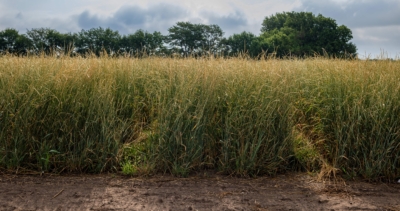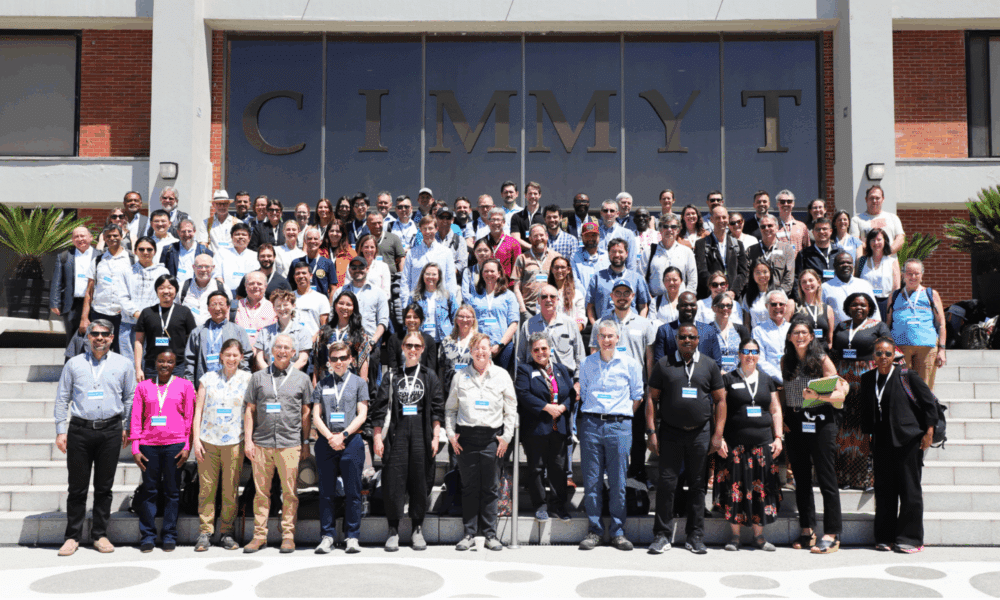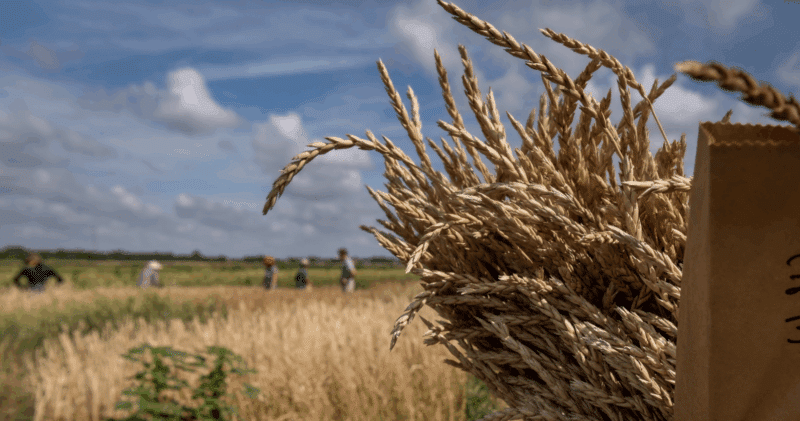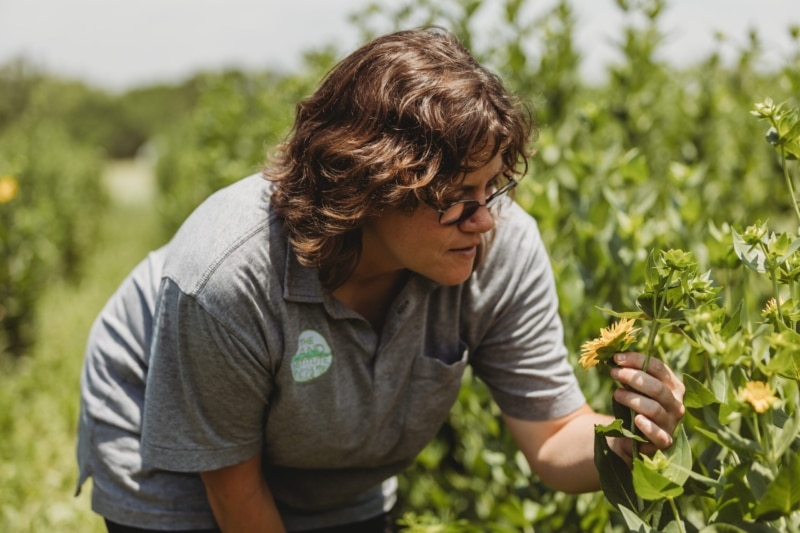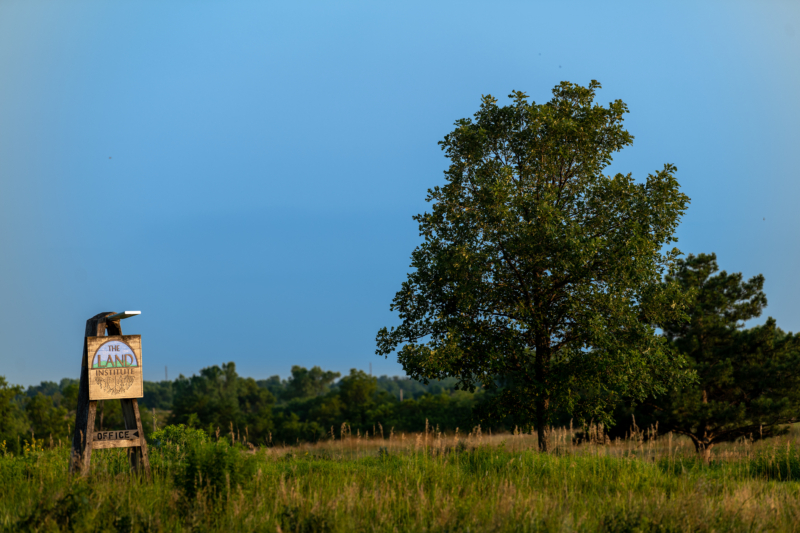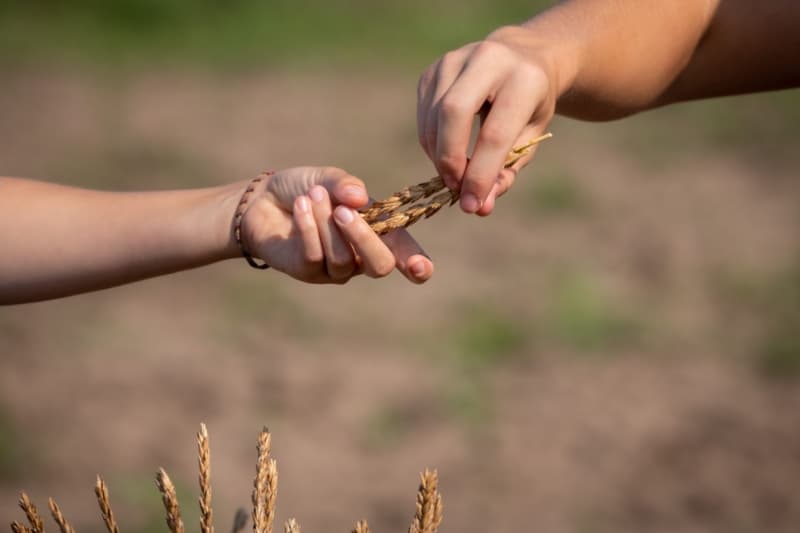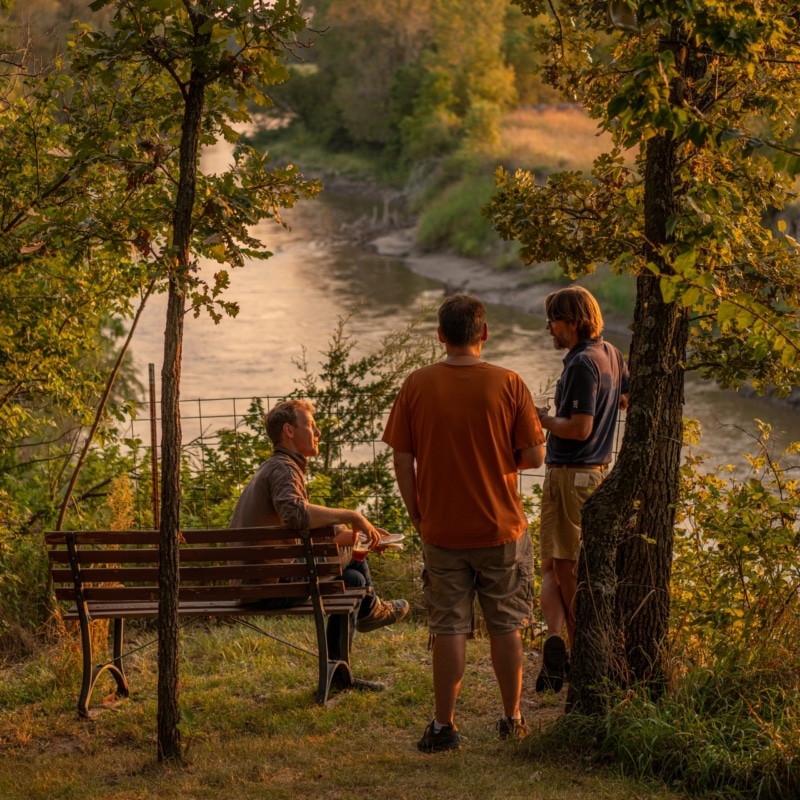Dear supporters,
“If your life’s work can be accomplished in your lifetime, you’re not thinking big enough.” — Wes Jackson, Co-founder of The Land Institute
As The Land Institute approaches its 50th anniversary, Wes’s words feel more relevant than ever. We’re celebrating five decades of patient, determined progress—and looking ahead to imagine what’s possible by 2075, 50 years from now.
In a time as turbulent as this, it can feel like folly to dream beyond the urgency of today. But The Land Institute has never let immediate challenges distract us from the steady work of building a future where people and land can flourish together. We are inseparable from the natural world. Healing our agricultural system takes long-term care—and a commitment to future generations and the ecosystems we depend on.
If we persist—if we continue, with your support, to innovate, collaborate, and ask hard questions— then 2075 will be different. We will feed ourselves as part of something greater: the creative, sustaining web of life.
If I’m lucky enough to live in 2075, I’ll be 95. More likely, I’ll have passed this work on. Thinking generations ahead invites us to reflect on legacy—the world we’re shaping, the wisdom we’ve received, and the path we create for others.
Our vision for 2075 looks like this: Dozens of perennial crops will feed people and restore soils across farmlands. The planet will likely be hotter and less forgiving, but our farming will be resilient —and help mitigate the worst of a warming climate. Schools will teach the next generation how food can be grown in ways that repair ecosystems, not deplete them. Communities will steward their food systems—and be nourished by them in return.
This future isn’t guaranteed. But it is possible.
We’ve already made significant progress. Kernza® proves that a new kind of perennial grain can be bred, grown, and eaten—and sequester carbon, support biodiversity, and protect clean water. Perennial rice offers high yields, resilience, and socio-economic benefits, and shows promise in tropical and subtropical regions already facing climate volatility. The seeds, methods, and relationships we’ve developed are already shaping what comes next.
In March, I traveled with colleagues to Texcoco, Mexico, for the largest global gathering of perennial grain researchers to date—95 participants from 25 countries. We met at CIMMYT (the International Maize and Wheat Improvement Center), the birthplace of the Green Revolution, where agricultural innovation once drove significant crop yield increases but also led to widespread soil loss and declining biodiversity. This time, we gathered to plant seeds of a different future—one rooted in regeneration, place, and partnership.
Together, we advanced a global effort to bring resilient, soil-saving crops to more farmers and more fields—work that can reshape how agriculture looks and functions across whole landscapes. These collaborations are growing a movement for perennial agriculture—one grounded in local knowledge, regional resilience, and shared commitment to healing land and feeding people.
At that meeting:
- CIMMYT added Kernza® and perennial wheat to their gene bank—a historic first.
- CIAT (the International Center for Tropical Agriculture) and ICRISAT (the International Crops Research Institute for the Semi-Arid Tropics) launched plans to develop perennial sorghum, pigeon pea, and perennial rice tailored to East Africa and Latin America.
- Partners began forming regional hubs in those regions, as well as in Australia and Europe.
- We organized working groups by shared priorities like soil carbon, genotyping, and equitable approaches to intellectual property.
A global movement is growing—from the ground up. And so are the people who will carry it forward.
Since our early years, The Land Institute has invested in education, and that investment is cultivating a new generation of leaders. Our internship and graduate fellowship program alums are stepping into leadership across this work. A dozen early-career researchers joined us in Mexico, embodying the next generation of perennial thinkers.
With radical imagination and practical resolve, we are realizing Wes’s vision of a diverse, perennial grain agroecosystem. We are boldly rethinking the very foundations of agriculture—our foodproducing ecosystem—and staying grounded enough to build it, one season at a time, using grains that regrow, roots that restore, and fields that nourish people and place.
What once seemed far-off is now taking root. Challenges remain, but progress is evident.
We have 50 years of roots beneath us. Now it’s time to flourish.
Your support has shaped the progress we’re celebrating in this 50th anniversary year—and we’re deeply grateful. If you believe this is our moment to think big and grow deep, please consider giving today.
GIVE TODAY
Perennially,
